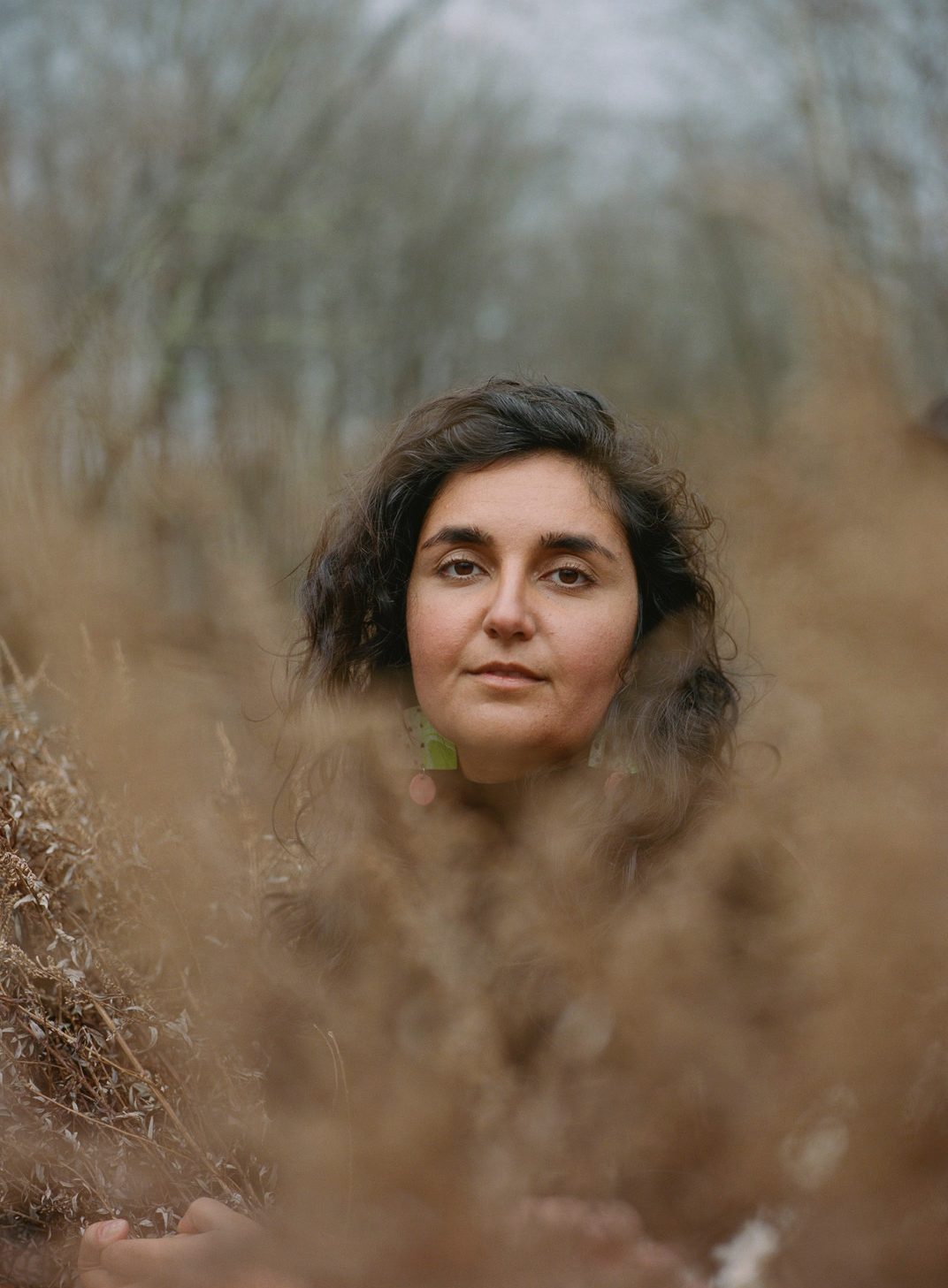
Mandana Vasseghi-Boushee: Bridging Land, Plants, and Poetry
Mandana Vasseghi-Boushee is a multifaceted force whose work weaves together the wisdom of plants, community organizing, and the power of storytelling. At thirty-eight, Vasseghi-Boushee draws on two decades of experience as an ethnobotanist, farmer, educator, and community herbalist. Her journey has not been just one of academic pursuit but a lifelong commitment to the land, its healing properties, and its people.
Born to Iranian parents and raised in the serene Hudson Valley, Vasseghi-Boushee’s childhood instilled in her a deep connection to the earth. Her maternal grandmother was a healer and herbalist who taught her a reverence for plants and their role in healing. This sparked a lifelong passion that led her to pursue ethnobotany, the relationship between humans and plants. This early connection with nature led Vasseghi-Boushee to explore plants in ways that transcended the academic realm. Her learning was grounded in hands-on traditional ecological practices, working directly with farmers, the land and its ecosystems.
Despite her vast experience, Vasseghi-Boushee found herself facing a barrier when she was invited to teach ethnobotany at Goddard College. The absence of a formal Bachelor’s degree in her CV, regardless of her extensive practical knowledge, meant she couldn’t be offered the position. This prompted her decision to return to school and pursue a degree at The New School. “I felt like I didn’t want to have a barrier for sharing my knowledge again,” Vasseghi-Boushee reflected.
For Vasseghi-Boushee The New School’s program, uniquely designed for adults returning to education later in life, was a perfect fit. It allowed her to engage deeply with her passion for writing and connect her to other adults who had similar lived experiences. She chose to pursue a Creative Writing degree, which might seem a departure from her career in ethnobotany, but is in fact, a continuation of her mission to tell stories—stories about plants, culture, and the environment.
Her creative writing studies have enabled her to reflect on how she communicates her work. “Writing is one of the most significant ways I share my experience working with plants,” she explained. The connection between writing and ethnobotany is key to her journey: “Having a solid foundation in environmental studies, I was eager to step outside of my comfort zone, into a space where I could grow as a writer and express those experiences in new ways.”
Though she’s a published writer in the field of plant medicine, she is now venturing into more artistic forms. Her senior capstone project will focus on poetry, “I’m Iranian, so I grew up with people sharing poetry all around me. It’s very common in our culture,” she said. “But I never allowed myself to fully claim the poet that’s been hidden inside of me all along. And I think that this writing program opened up parts of my writing practice that I didn’t actively tend or care for. It’s brought a new sense of excitement to my poetry practice, and allowed me to develop my voice in new ways.”
One of the most captivating aspects of Vasseghi-Boushee’s work is her relationship with poison ivy. It is “often feared, but they are a protector and advocate for the land and our more-than-human relatives, she explained. “They often grow where the earth has been disturbed, to help protect the land and the animals that rely on the habitat.” Her work with poison ivy reflects her broader belief in understanding nature beyond surface-level interactions. “Poison ivy’s loudest message is that they ask for respect and your presence,” she shared. “If you treat them with care, they will not harm you.”
Her commitment to storytelling also extends into her advocacy work. As the communications director at the Northeast Farmers of Color Trust (NEFOC), Vasseghi-Boushee uses her writing to support environmental and racial justice. “The storytelling aspect of my work is really exciting. It’s about restoring culture through the lens of BIPOC land and earth workers.”
Looking ahead, Vasseghi-Boushee sees her writing as an essential part of her ongoing career. The creative work she’s doing now will intertwine with her activism, farming, and environmental justice work. “I’m still very much enjoying all the possibilities that my time at the New School has opened up for me, but I know I’ll keep weaving writing into my work with the land trust and beyond,” she reflected.
Vasseghi-Boushee’s journey is a reminder that learning is a lifelong process, one that doesn’t stop with a degree but continues to evolve with experience, community, and the stories we tell. Whether through her work as an ethnobotanist, her advocacy for farmers, or her poetry, Vasseghi-Boushee’s mission remains clear: to connect, heal, and protect through the land and the stories that shape it.
You can explore more of Vasseghi-Boushee’s work on her personal website and learn about the herbal school she co-directs, Wild Gather, as well as the advocacy work she does through organizations like the Northeast Farmers of Color Land Trust.